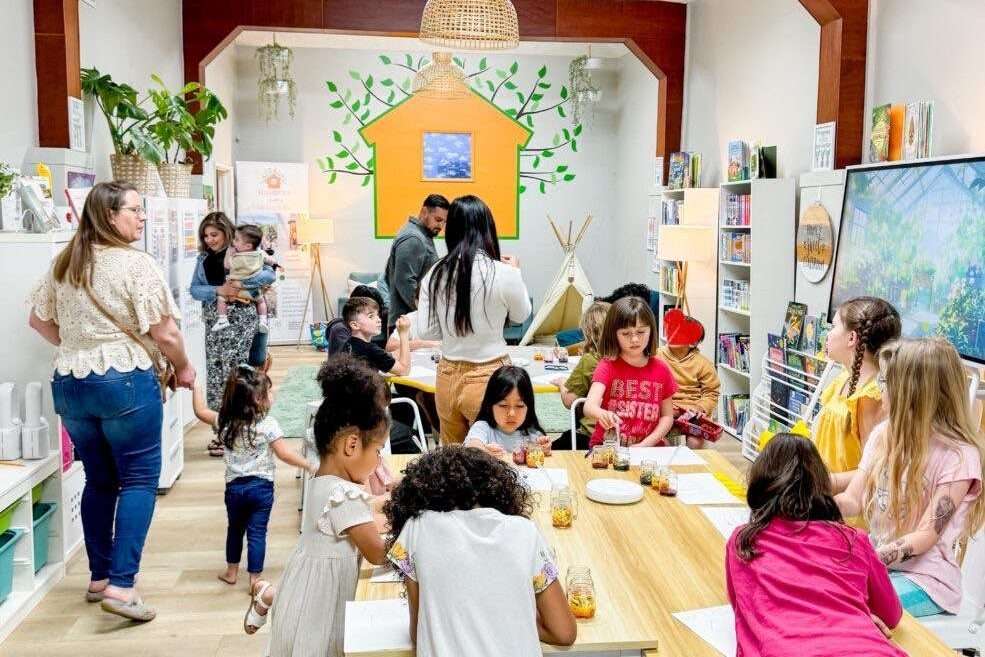Homeschooling me was not always easy. I remember being a young child—vibrant, full of energy, and with lots of things to say. I had a large vocabulary and was academically advanced for my age. I also struggled, facing challenges with communication, social cues, repetitive movements, and emotional outbursts. My parents understood that I experienced the world differently, and eventually we found out that I was autistic with ADHD.
Looking back, I realize how impactful unconventional education was in shaping my future. If I had been in public school, I probably would have been labeled as a special needs student with behavioral issues, and my outcomes might have been different. Homeschooling allowed my parents to focus on harnessing my strengths while providing tailored support where I needed it most. We integrated dance breaks, daily meditations, a visual schedule, verbal prompts, social skills practice, field trips, and personalized learning pathways into my routine to help me become more confident. I fondly remember having a small play village in the living room where I practiced independent-living skills like cooking, shopping, talking to the cashier, and budgeting. As an autistic adult, I still face my own unique set of challenges as I navigate the world, but homeschooling equipped me with skills and life lessons I carry with me today.
March 23rd closes out Neurodiversity Celebration Week, and Autism Awareness Month is just a few short weeks away.
Being an autistic homeschool graduate, I want to take a moment to celebrate how unconventional education is providing a platform for educators, parents, and students to create and participate in the educational spaces that work best for them, providing more neuro-affirming support and educational experiences now than ever before. In this article, I’m highlighting five microschool founders doing just that in their local communities and the impact these efforts are having on the wider movement to reform education in more innovative, market-based ways.
Lizette Valles & Amber Okolo-Ebube – Undoing the Harm of Traditional Systems
Traditionally, education for neurodivergent children has tended to focus more on instilling behavioral compliance. Students who are challenged by these requirements are labeled as having “behavioral issues” or provided learning plans that may or may not challenge them enough. Lizette Valles and Amber Okolo-Ebube are all too familiar with the disconnect in public education between the support neurodivergent students need and the way “support” is typically provided. Both of these founders are on a mission to create a more free and effective learning model for their learners, reversing the negative impacts of non-neuro-affirming practices in their respective communities.
Lizette is the founder of Ellemercito Academy in California. “Ellemercito Academy was created out of a deep conviction that education should be transformative, inclusive, and deeply personal—not a rigid system that forces children to conform to structures that don’t serve them,” Lizette says. Amber is the founder of Leading Little Arrows, a microschool in the Dallas-Fort Worth area serving primarily neurodivergent learners. “We serve a community that is 90% BIPOC, with 78% of our learners being [neurodivergent], including gifted children, and those with emotional disturbances,” Amber says. As she searched for better options, Amber says that she realized that “there was a significant gap in resources and educational support, particularly for families who couldn’t find flexible, individualized solutions.”
Much like my own homeschooling experience, Lizette’s academy focuses on providing space for students to discover their passions and express themselves through various creative mediums, such as art, music, entrepreneurship, content creation, and gardening. Her team meets with each family enrolled in the academy to design learning plans that center their goals, aspirations, and learning preferences. Lizette says that many of the learners she works with have previously been in traditional school systems, facing bullying, exclusion, or unmet learning needs. “We are not just an academy; we are a movement, proving that when education is built around the child, magic happens.”
Amber’s experiences shared similar themes. As a parent, she “witnessed firsthand how the system didn’t meet the emotional and academic needs of diverse learners, especially those who were neurodiverse or gifted,” she shared. Amber stated that it was “disheartening” to watch her children, and others like them, “fall through the cracks.” Like Lizette, Amber believes that the best way to help neurodivergent learners thrive is through personalized learning opportunities rooted in trust and infused with their unique interests. Amber’s academy focuses deeply on SEL (social-emotional learning skills), while embracing a diverse array of teaching and learning styles.
Both Amber and Lizette have been nationally recognized for their efforts, with Amber being a 2023 Yass Prize quarterfinalist and one of this year’s 50CAN National Voices Fellows, and Lizette’s academy being named a winner of Getting Smart’s recent Learning Innovation Fund grant.


Rachel Frevert, Melanie Leone, & Kenneth Danford – Supporting Neurodivergent Learners Through Intentional Education
A common challenge for families that has led to more parents choosing alternative educational options for their children is that public schools are often not adequately equipped to support neurodivergent learners and their unique needs, much less provide personalized support for each learner. Three founders from different parts of the US—Rachel Frevert, Melanie Leone, and Kenneth Danford—have created their own neuro-affirming learning spaces that emphasize catering to the needs of the whole child, not just providing schooling.
Rachel, a mom of an autistic child and founder of the Integrative Learning Academy (ILA), created her Arizona microschool as a response to the effects pandemic-era virtual schooling was having on her son. Rachel says that a significant number of learners who come to her microschool have faced substantial challenges in public education, from behavioral challenges to academic struggles. Thanks to their emphasis on balancing unstructured learning with direct instruction, Rachel says that the children who enroll in ILA make significant progress, with many who were 1–2 years behind catching up within a year of enrolling.
For Melanie, a former public school teacher who founded a microschool called the Anchor Center for Learning in Ohio, education is all about collaboration. Melanie says that her microschool has three goals: empower student autonomy, mimic real-world learning, and inspire a love for learning. Melanie’s school partners with an advocacy organization to accept IEPs, or individualized education plans, for students with special learning needs, but she also believes that it is important to ensure “that individualized goals are not only met but meaningfully incorporated into daily learning experiences.”
Kenneth, founder of an academy called North Star in Massachusetts, believes that education is best done when led by learners. North Star prioritizes education over schooling. A number of neurodivergent learners attend North Star, thanks to its emphasis on unschooling, or self-directed learning, and an engaging variety of academic and extracurricular activities. North Star allows learners to opt in or out of learning opportunities based on their interests. Kenneth believes that unschooling is one of unconventional education’s most unique models because it asks learners: “What would you like to do? How would you like to do it?”
All three founders emphasized the importance of intentional instruction that targets the unique needs of neurodivergent learners, while providing freedom for them to express themselves and create their own pathways to success.
The Future of Neuro-Affirming Education
“Imagine a world where every neurodivergent learner walks into a space where they feel seen, valued, and supported—where their unique ways of thinking are not just tolerated but celebrated,” Lizette stated. This is a beautiful future to imagine: a world in which the idea of freely learning for the fun of it is embraced and encouraged, just like in my homeschooling journey. The number of children diagnosed with autism, ADHD, and/or learning disabilities has been increasing in recent years. It raises the question: What systems and supports will be available for these children in the near future? What role does unconventional education play in ushering in a new age of neuro-affirming and inclusive education focused more on individual empowerment? I suspect it will be a big one.
Each founder I interviewed had both concern and optimism about the future of education, and shared their predictions about how this will impact neurodivergent learners. Most were exceedingly skeptical of public education’s capacity to adapt quickly enough to the ever-evolving needs of neurodivergent learners. Some stated plainly that less regulation provides room for more innovation—something traditional educational systems have had a hard time embracing. Many expressed that there is not one succinct goal for the future. The educational system should be fluid and always open to change based on the unique needs of learners and educators in each new era.
Homeschooling provided me with a unique opportunity to grow and develop in my own time and at my own pace, and provided space for me to focus on my special interests as long as I desired. My story is not an isolated example. The work these edupreneurs are doing is paving the way for the creation of more models that will empower neurodivergent learners to embrace learning. A more decentralized, free-market model of education is the key to ushering in a future of learning that is affirming and accessible for all.







